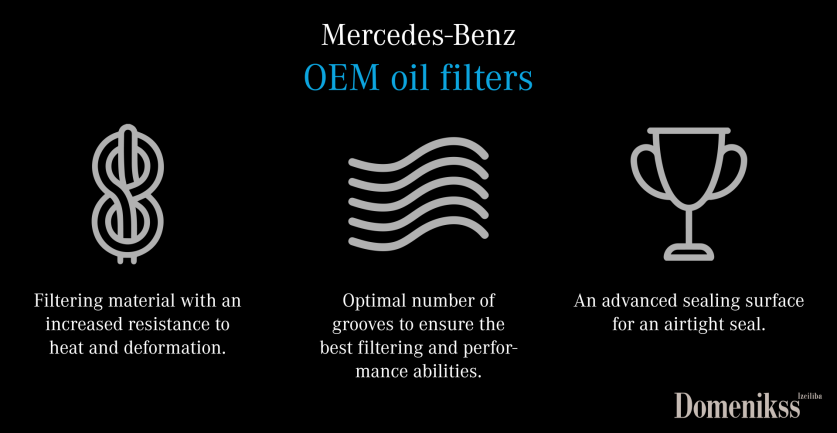 A car’s oil distribution and filtration system is often compared to a human’s circulatory system. From this statement it can be concluded that it is vital for an engine’s correct operation and longevity. But have you ever asked your service technician: “What kind of an oil filter will be put on my car?” This is a question that, if answered incorrectly, can lead to costly repair bill. Domenikss together with the editor of iAuto Maris Ozolins, look for the correct answer!
A car’s oil distribution and filtration system is often compared to a human’s circulatory system. From this statement it can be concluded that it is vital for an engine’s correct operation and longevity. But have you ever asked your service technician: “What kind of an oil filter will be put on my car?” This is a question that, if answered incorrectly, can lead to costly repair bill. Domenikss together with the editor of iAuto Maris Ozolins, look for the correct answer!
Can you feel the difference? Your Mercedes-Benz can!Only in April a complete oil change in Domenikss service center-30%A complete oil change includes an OEM oil filter, oil, service materials and labour. |
In order to find the right answer, we must choose the criteria to compare the different oil filters. The most important of them are the quality of the materials used, the amount of grooves, the design of the filter body and the quality of the sealing surfaces.
When comparing an OEM oil filter to a non-OEM one, we can notice that the material of the OEM filter is much thicker, which means that the filter is more resistant to heat and deformation. If a filter is not characterized by these two properties, it can deform during use, which can then lead to an unwanted circulation of unfiltered oil. There have been situations when the material of a non-OEM filter is so thin and soft that it has completely blocked oil circulation in the engine.
An over-exaggerated number of grooves on a filter can lead to a decrease in the flow of oil. During the development of Mercedes-Benz oil filters, simulations and calculations are carried out to find the number of grooves that works the best for a particular engine. Mistakes in non-OEM filters can be found both ways – either there might be too many grooves or too few.
Keeping in mind the previously discussed properties, a suitable body must be designed for the filter. During the development of a Mercedes-Benz oil filter, the best materials are chosen, therefore no additional support structure is needed. In comparison, the materials used in non-OEM filters are of a worse quality and therefore require the use of additional support structures, which compensate for the filter’s material disadvantages, but block the functional area of the filter as well.
The quality of the sealing surfaces of a filter are of utmost importance in order to ensure an airtight seal of the filtration system. No unfiltered oil should be able to get past the filter and no debris should be able to make its way inside of the oil distribution system.

During the development and manufacturing of the original Mercedes-Benz oil filters, each of these criteria are meticulously analysed to guarantee the best performance and longevity of an engine. Mercedes-Benz OEM oil filters guarantee to deliver optimal filtration properties during the entire oil change interval, which is 20 000km or 1 year.



